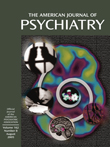To the Editor: The five-factor model is based on the lexical hypothesis that anything meaningful about personality can be identified by studying the language people naturally use to describe one another. The question is, what language should we study?
If we want to apply the lexical hypothesis to clinical phenomena, we would do well to apply it to the concepts of expert clinicians, not just ratings by laypeople. Practitioners of other medical subdisciplines would not agree to restrict their diagnostic concepts to the everyday language used by their patients (e.g., headache, feeling queasy) and for good reason: Experts develop knowledge and understanding that laypeople do on not share. One would not ask physicians to limit themselves to the diagnostic vocabulary of their patients unless one believed that they understood nothing more than laypeople about physiological processes. The same applies to clinical psychologists and psychiatrists and their understanding of mental processes.
Our use of an item set designed for experts allows us to assess constructs that are difficult to capture with self-report measures, however well constructed. For example, the SWAP-II addresses the clinically crucial concept of splitting (dichotomous thinking) in borderline patients with items such as, “When upset, has trouble perceiving both positive and negative qualities in the same person at the same time (e.g., may see others in black or white terms, shift suddenly from seeing someone as caring to seeing him/her as malevolent and intentionally hurtful, etc.).” It assesses subtle forms of thought disturbance that laypeople often overlook (e.g., “Tends to think in concrete terms and interpret things in overly literal ways; has limited ability to appreciate metaphor, analogy, or nuance”) and “Thought processes or speech tend to be circumstantial, vague, rambling, disgressive, etc. (e.g., it may be unclear whether he or she is being metaphorical or whether his or her thinking is confused or peculiar”). It assesses defenses and coping strategies that are absent from the five-factor model entirely (e.g., “Tends to see own unacceptable feelings or impulses in other people instead of in himself/herself”).
Although the five-factor model is empirically elegant, its advocates have not convincingly addressed the question of clinical utility. The five-factor model has engendered little enthusiasm among clinicians, precisely, we suspect, for the reasons outlined here. Spitzer and colleagues (personal communication, December 2004) recently conducted a “nonpartisan” comparison of alternative proposals for axis II for DSM-V. They found that experienced psychiatrists and psychologists consistently rated the five-factor model less clinically useful than other diagnostic systems richer in clinical depth (including our system derived from the SWAP-200).
We do not, as Drs. Widiger and Trull assert, advocate “a distinct separation of our clinical understanding of personality disorders and basic science research.” On the contrary, we agree that such integration is essential. However, we do not believe the way to achieve this integration is by asking experts to talk and think like laypeople. If DSM-V is to be relevant to scientists and practitioners both, it will need to pay more attention than previous editions of the manual to clinical relevance and utility
(1). Substituting the language of everyday conversation for the language of clinical discourse seems unlikely to achieve this goal.

